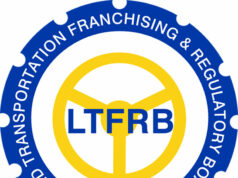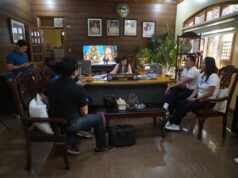From a little-known region of China, the coronavirus has become the defining phenomenon of the new decade, spreading all over the world, ignoring geopolitical and socioeconomic barriers to infect even people as powerful as the President of the United States.
The COVID-19 pandemic has plunged the world into an economic downturn that most experts predict will rival that of the Great Depression. To prevent its spread, countries have scrambled to impose quarantine measures, to the detriment of business and large-scale industries. Millions of lives have been lost, and millions more have lost their livelihoods. Small and medium enterprises, which comprise the bulk of the Philippine economy, are at a loss. How can small businesses contend with a global catastrophe that has left much of the modern world reeling?
The Asian Institute of Management Rizalino S. Navarro Policy Center for Competitiveness and the Konrad-Adenauer-Stiftung Philippines Office aims to answer that question with its series of web conferences titled “Rethinking Small Business Strategy and Support Post-COVID 19”. “Many of these companies are not able to face the crisis in this way or to survive as well, especially if this is a long-lasting crisis, as large companies and corporations can do,” Prof. Dr. Stefan Jost, Konrad Adenauer Stiftung Philippines Country Director, said in his opening remarks.
“It is therefore a matter of taking a clear inventory of the sector and developing solutions together. There are certainly differences between the individual areas, but we can also learn from each other. A differentiated view of the various sectors is required for this and that is the goal of today.”
The first session of the web conference focused on the topic, “The Way Forward for SMEs: Insights from Small Business Owners,” pooling together a panel of business owners who have been affected by the COVID-19 pandemic to gather insight and information about how entrepreneurs can find a way through the challenges posed by this new, uncertain world.
Joel Martin Andrade, co-founder and creative director of Issy & Co. Cosmetics, was caught the least prepared, as the pandemic hit just as his brand was about to launch a massive expansion, complete with a planned marketing campaign.
“When the pandemic hit, it was a shock because we already paid for the endorsers, the ads, but we’re not able to sell. Our online hubs were not able to fulfill at the time, and we were supposed to expand to department stores. We all had to shut it down,” he said.
To recover, he said that they had to rethink, refocus, and reorganize what they had wanted for the brand moving forward. This included changing his mindset about growth.
“We were trying to go at a speed that wasn’t healthy for the brand. We realized that we weren’t ready to expand, and because of the pandemic we were able to restructure, reorganize,” he said, adding that it also gave them time to complete the transition to online platforms that they had begun prior to the pandemic.
Digital transformation is evident all over the country. Various industries are pivoting to online marketplaces to reach their customers, as well as using digital platforms to continue operations despite the government-imposed lockdowns.
Kirk Chester Damasco, co-owner and co-founder of Get Blued & Worship Generation, who had so far been operating physical retail stores, acknowledged the inevitable shift towards e- commerce.
“With COVID, it finally made it clear the direction of the retail market in the Philippines. While the mall will still be there, the shift has been continuous and steady for online platforms. Now that COVID has happened, it has fast-tracked the shift from brick and mortar stores to online,” he said.
“What is happening now is that even though the restrictions are slowly being loosened, people are still quite afraid to go to malls, and even if they do, one stark change in behavior is that the browsing and the window-shopping have diminished. People go to malls with fixed things in mind to buy. Browsing really happens now online. That is one of the, if not the most important, trend or change that we see in light of COVID.”
Embracing and adapting to change
This was further highlighted in the second session of the web conference, which was titled, “Crafting and Applying Pivot Strategies: Ideas from the Experts”.
Prof. Rene T. Domingo, retired associate professor from the Asian Institute of Management, pointed out that to survive, businesses have to reassess their strengths and their assets and innovate to adapt to the world their consumers live in.
“The idea is innovation. Pivoting is about innovation, looking at opportunities among the problems that beset us. This is the way entrepreneurs look at the economy: for every problem, there is a business that can be monetized,” he said.
He highlighted health, safety, convenience, and frugality as the current expectations of the consumer market. Pivoting, he says, means offering more value for consumers while adhering to those expectations.
Prof. Rebecca R. Ricalde, clinical professor from the Asian Institute of Management, added that months into the pandemic, we are past the phase where businesses can expect things to go back to the way they were.
“Shift your focus to how your products and services connect to customers to what is important to them now,” she said.
Indeed, Derya Tanghe, co-founder of farm-to-door delivery firm Future Fresh, saw the COVID- 19 pandemic as a wake-up call for both the public and private sectors to address gaps in the country’s infrastructure and food systems.
“No one really anticipated the global pandemic that happened. It proved the urgency of building a new food system that makes it easier to access high-quality nutritious food. What we saw at the beginning of COVID was that a lot of the infrastructure and the roads were closed. A lot of farms couldn’t actually deliver or reach stores. At least 30-50% of produce or vegetables are wasted upon travel. That was further exacerbated during the pandemic,” Mr. Tanghe said.
“For us, we saw that a lot of people moved towards online and e-commerce. We were kind of lucky that we had already shifted and planned to do that prior.”
A path to the future
Donn Carlo Gamboa, co-founder & CEO of White Cloak Technologies, advised businesses who were affected by the pandemic to look into accessible and affordable ways to transition their operations online.
“As a business, we also had our challenges when we had to transition from physical collaboration, which is one of the things that differentiate our business from our competitors into a remote setup. It has been a great challenge because our clients typically prefer face-to-face meetings and so on,” he said.
For many SMEs, Mr. Gamboa added, digital transformation is the only way forward. And while getting custom-fit digital solutions will be out of reach for many businesses cost-wise, he suggested looking into platform-based and subscription-based options, which are less risky and less expensive.
Yet while the country goes through accelerated digitalization, there are other issues that need to be highlighted. In the third session of the conference, titled “Policies to Support SME Recovery – Support for SMEs and Entrepreneurs: Discussions on Policy Options”, Dr. Lucia Cusmano, senior economist OECD Centre for Entrepreneurship, pointed out the inherent cybersecurity risk of so many businesses going online without much preparation.
“There is a huge mass of businesses that are not prepared to manage cybersecurity and digital risks, and are currently highly exposed to these risks. While this may look like a marginal issue today, we’ve already seen a big increase in digital harm suffered by the SME population. This is going to be one of the biggest challenges that we need to address,” she said.
In the same session, Ma. Flordeliza C. Leong from the Philippine Exporters Confederation Inc. had this to say, “The challenges are not really new, they are just being exacerbated. What is new is the intense pressure to adapt to these changes.”
While there is no end yet in sight for such challenges brought by the pandemic, the panelists urged entrepreneurs to keep learning about the new market environment, sticking true to their brand purpose, and discover new ways of serving their customers. What allows companies to survive and thrive in the pandemic will be the agility, innovation, and resilience it will take to assess the situation and make the decisions to move forward.
“It’s all about doing what you can. When you’re a small brand you don’t have the luxury of bringing in more people or on relying on somebody else. You know your customers the best,” Mr. Andrade said.



